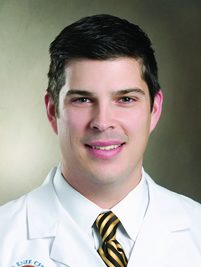Almost every rheumatologist is asked what to do about antirheumatic drugs when a patient is scheduled for hip or knee replacement. Soon there will be guidelines that can help guide those conversations and decisions.

“The majority of patients who are coming in for hip and knee replacements are taking some sort of potent antirheumatic therapy,” said Susan M. Goodman, MD, Associate Professor of Clinical Medicine at Weill Cornell Medical School and Medical Chief and Research Director of the Combined Arthritis Program at the Hospital for Special Surgery in New York. “Since patients with inflammatory arthritis are at risk for certain complications like infections, there are very real questions about how to proceed with medications in the perioperative period.”
Many of those questions will be answered.
Dr. Goodman and Jasvinder Singh, MD, MPH, Professor of Medicine at the University of Alabama-Birmingham School of Medicine, will discuss a drafted ACR/AAHKS guideline for the Perioperative Management of Anti-Rheumatic Medication in Patients with Rheumatic Diseases Undergoing Elective Total Hip or Total Knee Arthroplasty on Monday from 9:00 – 10:00 am in Ballroom C.

Dr. Goodman is co-principal investigator for the new guideline with orthopedic surgeon Bryan Springer, MD, fellowship director at OrthoCarolina Hip and Knee Center in Charlotte and a member of the American Association of Hip and Knee Surgeons. The guideline is presently under review, with publication anticipated in early 2017.
“One of the most difficult complications we deal with as orthopedic surgeons is periprosthetic joint infection following hip or knee replacement,” Dr. Springer said. “Although somewhat rare, it is a devastating problem for patients with a joint replacement. It has very high morbidity, very high mortality, and is very difficult to treat. And we know that patients with inflammatory arthritis are at higher risk for developing infections, largely because of the immunosuppressive activity of their medications. But we had no evidence to guide us.”
Rheumatologists had just as little evidence and no consistent guidance, he said. Rheumatologists recommended everything from stopping all medications to not stopping any medications, stopping a month before surgery, stopping a week before surgery, or stopping only some medications and not others.

“Patients and orthopedists frequently have questions about these medications when they have joint replacement surgery,” said Dr. Singh. “There were no good answers or a formal guideline from either rheumatology or orthopedic societies. We saw this as an opportunity to develop a comprehensive guideline to address the management of both traditional medications as well as biologics for patients with rheumatoid arthritis, psoriatic arthritis, spondyloarthritis, lupus, and juvenile idiopathic arthritis.”
The ACR and AAHKS created a joint task force to examine the evidence regarding the risks associated with joint replacement surgery for patients taking antirheumatic drugs, grade the evidence, and create guidelines for appropriate management. The guideline development committee used the Grading of Recommendations Assessment, Development and Evaluation (GRADE) methodology. GRADE uses systematic reviews of the literature to evaluate and grade the quality of the evidence in a particular domain on a scale from high to low, said Dr. Singh. These evidence reviews are then used to create guideline recommendations for or against particular options that range from strong to conditional, depending largely on the quality of the evidence.
“I don’t think there will be any surprises in this guideline,” he said, “and I don’t think there should be surprises. We are not here to tell clinicians what to do. Our objective is to provide evidence-based, methodologically rigorous guidance to help inform thinking and decision making.”
Patient input was a key element in the final recommendations. Withholding biologics before surgery might reduce the risk of perioperative infection. Withholding biologics also increases the likelihood of a flare at a time when patients are expected to be engaged in intensive physical therapy following joint replacement. Clinicians expected patients to opt for continuing medications through the perioperative period to minimize the risk of flare.
However, “Our patient panel was overwhelmingly more concerned with the risk of an infection than they were about the likelihood of a flare they anticipated when we withdrew medication,” Dr. Goodman said. “They felt very strongly that flares were something they were accustomed to toughing through and that the primary focus should be on preventing infection.”
